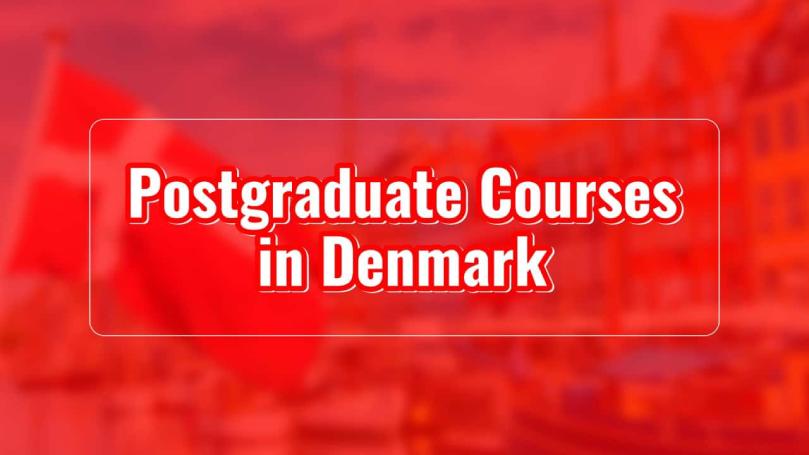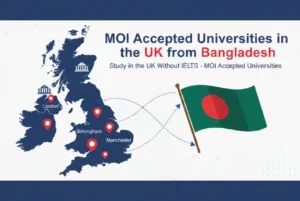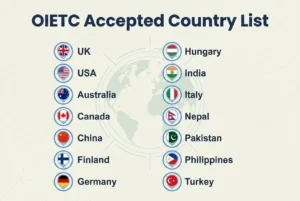Are you looking for postgraduate study options in Denmark? When it comes to pursuing postgraduate studies, Denmark emerges as a top destination offering exceptional educational opportunities. Renowned for its high-quality education system, innovative research facilities, and a vibrant cultural scene, Denmark attracts students from around the globe seeking advanced degrees in various fields. This comprehensive guide will delve into the diverse options for available postgraduate courses in Denmark, highlighting key aspects, popular programs, admission requirements.
Types of postgraduate study in Denmark
In Denmark, postgraduate studies encompass various degrees and programs tailored to different academic interests and career paths. Here are the primary types of postgraduate study options available in Denmark:
- Master of Science (MSc) / Master of Arts (MA)
- Master of Business Administration (MBA)
- Doctor of Philosophy (PhD)
- Executive MBA and Management Programs
- Research Master’s Programs
Popular universities to study postgraduate in Denmark
Denmark boasts several renowned universities and institutions offering exceptional postgraduate programs across diverse fields. Here are some of the popular universities that offer postgraduate courses in Denmark.
- University of Copenhagen
- Aarhus University
- Technical University of Denmark (DTU)
- Copenhagen Business School (CBS)
- Aalborg University
- Roskilde University
- University of Southern Denmark (SDU)
- IT University of Copenhagen
Top demanding postgraduate courses in Denmark
In Denmark, several postgraduate courses are in high demand due to their alignment with industry needs, emerging trends, and research priorities. Some of the top demanding postgraduate courses in Denmark include:
| Subject | Degree | University |
| Accounting and Finance | Master (2 years) of Economics and Business Administration | University of Southern Denmark (SDU) |
| Actuarial Mathematics | Master (2 years) of Science | University of Copenhagen (UCPH) |
| Agricultural Economics | Master (2 years) of Science | University of Copenhagen (UCPH) |
| Architecture | Master (2 years) of Architecture | Aarhus School of Architecture |
| Bioengineering, MSc in Engineering | Master (2 years) of Master of Science (MSc) in Engineering | Aalborg University (AAU) |
| Biomedical Engineering | Master (2 years) of Science | Technical University of Denmark (DTU) |
| Business Administration | Master (2 years) of Business Administration | Aarhus University (AU) |
| Business Administration and Leadership | Master (2 years) of Economics and Business Administration | Roskilde University (RUC) |
| Chemistry | Master (2 years) of Science | University of Southern Denmark (SDU) |
| Civil Engineering | Master (2 years) of Science in Civil Engineering | Technical University of Denmark (DTU) |
| Climate Change | Master (2 years) of Science | University of Copenhagen (UCPH) |
| Cyber Security and Privacy, Master | Master (1 year) of Master | Aalborg University (AAU) |
| Full-time MBA | Master (1 year) | Copenhagen Business School (CBS) |
| MBA in General Management | Master (1 year) of Business Management | International Business Academy (IBA) |
| MSc in International Business | Master (1 year) of International Business | International Business Academy (IBA) |
| MSc in Business and Organisational Psychology | Master (1 year) of International Business | International Business Academy (IBA) |
| Advanced Power Electronics, MSc in Engineering | Master (2 years) of Science in Engineering | Aalborg University (AAU) |
| Agricultural Development | Master (2 years) of Science in Agricultural Development | University of Copenhagen (UCPH) |
| Anthropology | Master (2 years) of of Science in Anthropology | University of Copenhagen (UCPH) |
| Bioinformatics | Master (2 years) of Science in Bioinformatics | Aarhus University (AU) |
Entry requirements for the postgraduate courses in Denmark
Entry requirements for postgraduate courses in Denmark can vary depending on the university, program, and field of study. However, several common requirements apply across most institutions:
Academic requirements
Typically, applicants need a relevant Bachelor’s degree or an equivalent qualification from a recognized institution. The degree should be in a field closely related to the chosen postgraduate program. Many universities set a minimum GPA requirement for admission. Requirements can vary, but a competitive GPA is often necessary, usually around 3.0 on a 4.0 scale or equivalent.
English requirements
Since most postgraduate courses in Denmark are taught in English, international students are required to demonstrate proficiency in English. Accepted English language tests are IELTS, TOEFL, and Cambridge English exams are commonly accepted. Specific score requirements vary among universities but often fall within the range of 6.5 to 7.0 for IELTS and 83 to 100 for TOEFL (iBT).
Tuition fees for postgraduate courses in Denmark
Tuition fees for postgraduate courses in Denmark vary based on several factors, including the university, the specific program, and the student’s nationality (EU/EEA vs. non-EU/EEA). Here’s an overview:
In many cases, students from EU/EEA countries are eligible for tuition-free education for postgraduate programs in Denmark. They may need to pay semester fees and administrative charges, but tuition fees are often waived. Non-EU/EEA students usually have to pay tuition fees for postgraduate courses in Denmark. The annual tuition fees for full degree students range between USD 8,000-21,000 / Euro 6,000-16,000 (DKK 45,000-120,000).
Scholarships for postgraduate courses in Denmark
Denmark offers various scholarships and financial aid options to support international students pursuing postgraduate courses. These scholarships are provided by Danish government organizations, universities, and external institutions. Here are some prominent scholarships available for postgraduate courses in Denmark:
- Danish government scholarships for non-EU/EEA students
- The Danish State Educational Support (SU)
- Fulbright Denmark
- Erasmus Mundus/Joint Master Degree
- Erasmus
Final words
Denmark stands out as an exceptional destination for postgraduate studies, offering a blend of academic excellence, research opportunities, and a high quality of life. With its diverse programs, supportive environment, and emphasis on innovation, pursuing postgraduate education in Denmark can be a transformative and rewarding experience for students aiming to broaden their horizons and excel in their chosen fields. If you want to apply for the postgraduate courses in Denmark you can always contact AIMS Education.





